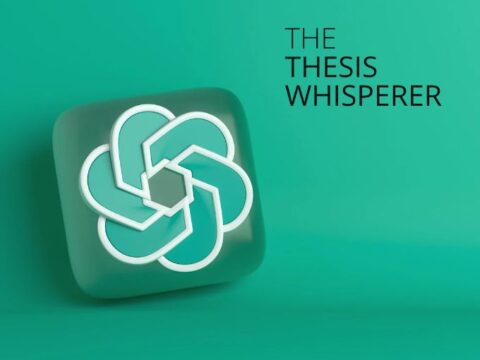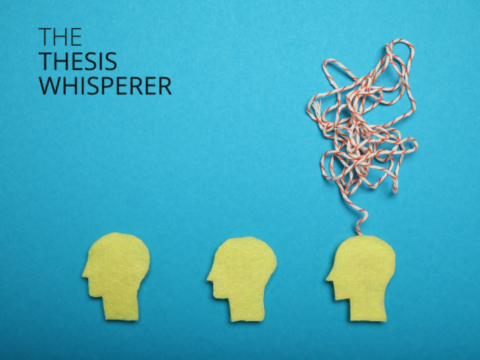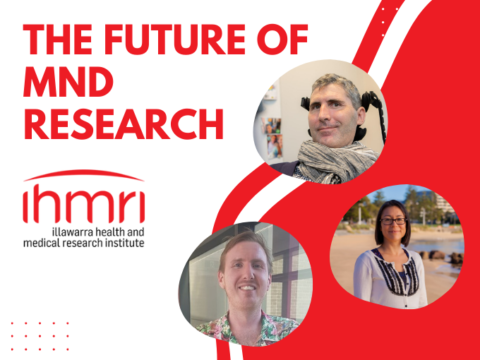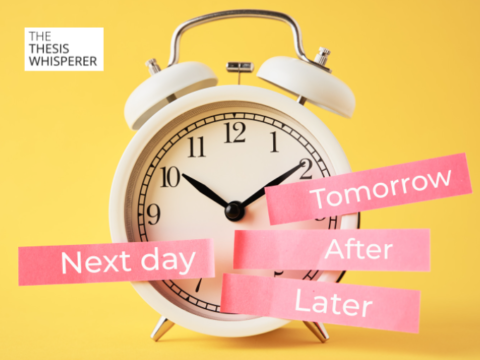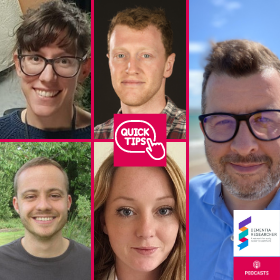Have you given up a great full time job to do your PhD? Some of you might have done this fairly recently – what changes can you expect?
Jo Khoo is currently enrolled in a PhD at the University of Wollongong, Australia. Her research focuses on health services use and financing, particularly related to service delivery for people

living with chronic diseases and the role of health insurance. She commenced a PhD full-time in 2016 after a decade working as a public health professional in research management, information systems and health policy. Jo has managed to combine her love of travel with study and work experiences, having spent time living in Italy and Vietnam. She hopes to have the opportunity to continue combining this passion in her future career.
I made the decision to commence a full-time PhD after ten years in the workforce. At the time, many people made encouraging comments such as, “you’ll be fine, you’re very organised.” While I appreciated their compliments, I didn’t share the same level of confidence. Although I worked with researchers every day as part of my job, I still felt like I was stepping into the unknown.
During the early days of my PhD, I found that some of the ways that I used to work were not always helpful and added to my stress levels. I found many resources aimed at students transitioning from undergraduate and Masters degrees to PhDs, but not many aimed at those making the transition from full-time work to full-time study.
Based on my experience, here are five realisations that helped me make the transition.
1 – The learning doesn’t stop at the end of the PhD
When I started my PhD, I was struck by the amount of time I now had to read and think about issues. I knew this was a luxury not afforded in many jobs, so I wanted to make the most of it. Accustomed to project management, I embraced learning in my PhD with a very structured approach in which I set a series of goals and timeframes to work through. However, I soon realised that I have to be willing to go where my research leads me rather than rigidly following a pre-determined plan.
A friend said to me, “you’ll spend the first year realising how much you don’t know” and that statement has certainly rung true.
I could spend every day in the three or four years of my PhD reading yet I still wouldn’t scratch the surface of all the things that are of interest to me and relevant to my research. However, there’s nothing to stop me taking some of the PhD mindset to the next stage of my career (wherever that may be) and ensure that I make time for learning on a regular basis.
2- Be patient and embrace being challenged again
The idea of greater intellectual challenges drew me to a PhD but the reality was more difficult than I imagined. Prior to starting a PhD, I had been in my job for more than five years and knew how everything worked. Relinquishing the role of “problem-solver” for “newbie” was hard.
I tried to apply some of my work-place problem solving skills, but soon found out that quick fixes are not compatible with high quality research. There is a reason that is takes several years to complete a PhD and a key factor is that clarity and more sophisticated reasoning evolves over time. While good time management is important in a PhD, not everything can have a deadline imposed.
As an aside, there is an important distinction between challenging yourself and isolating yourself. There has been numerous times when I have needed to put aside my ego and the thought that “I should be able to work it out” and just ask the question!
3 – Don’t forget what works for you
Generally, you get to decide your own working structure throughout your PhD but don’t disregard what you already know about the working environment and schedule that work best for you.
I work best with structure and the feeling of making progress every day (however small that is) so having an office to go to every day, writing lists and breaking work into chunks that can be completed in a few hours or a day, are strategies that continue to work well. Despite trying to convince myself for a while that I could do more work at home, if I’m honest with myself, I’m more productive out of the house at this stage of my research. I miss the social interaction if I’m at home for days on end.
4 – Not everything needs to be new
Starting a PhD brought change at professional, financial and emotional levels. I found that keeping elements of my former routine were comforting and provided much needed balance. I continued to work one day a week at the organisation where I had previously worked full-time. Being able to spend a few hours a week focussed on work not related to my PhD was helpful. The moral support and advice from former colleagues, many of whom have had the experience of completing a PhD, has been particularly beneficial.
5 – Ignore social expectation and enjoy the journey
Our society focuses on a fairly narrow, linear model of career progression. Leaving a steady full-time job and sacrificing income and free time for an uncertain future career can bring both overt and subtle judgement from those around you. However, it is the path I chose and I have no regrets. I am lucky to be supported by those closest to me and energised by the knowledge and skills I am gaining. While there are things I have given up, I feel like I am gaining much more.
Change is not a comfortable process and settling into a PhD, committing myself to several years of full-time study, was a difficult decision. However, it has been immensely rewarding and enjoyable in ways I had not predicted. Despite the fact my professional and personal identity is changing, I realise that I didn’t leave behind my previous career completely and my skills and experience have helped me in my PhD in numerous ways.
While these have been the take away points from my experience, I would be interested to hear advice and experiences from others in a similar situation.
 You can follow Jo Khoo on twitter – Follow @jokhooz1
You can follow Jo Khoo on twitter – Follow @jokhooz1
Or Linkedin at Jo Khoo on Linkedin
This article was originally published on the Thesis Whisperer
https://thesiswhisperer.com/2018/04/18/coping-strategies-for-full-time-workers-turned-phd-students/

 Print This Post
Print This Post

